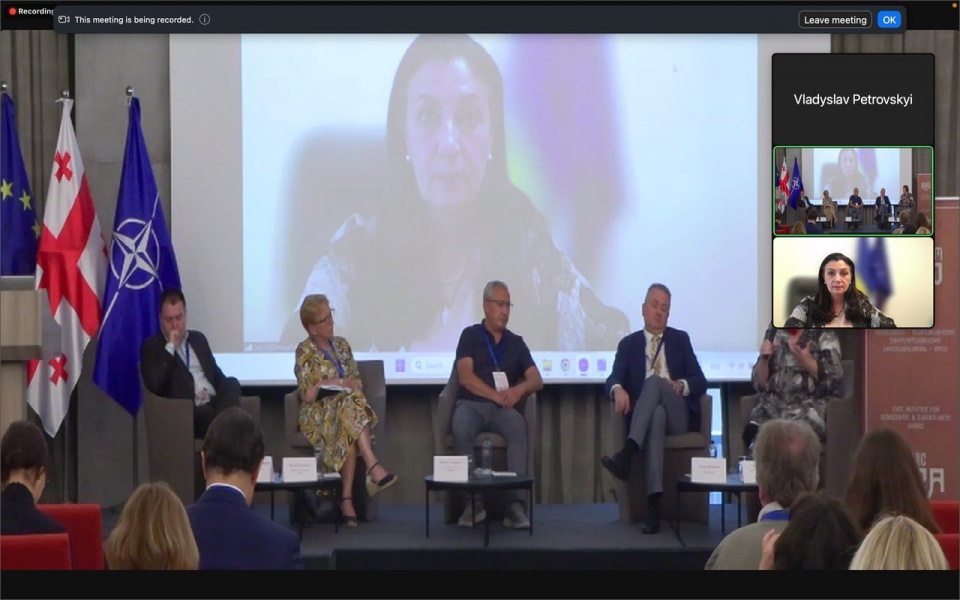The attempt to invade Ukraine is the last convulsion of the Russian Federation, – Ivanna Klympush-Tsintsadze
28 June 2024, 10:41

The Chair of the Committee on Ukraine’s Integration into the EU noted that Russia's war against Ukraine raises many questions and has many consequences for the world and the world order in general. Firstly, international law and the concept of territorial integrity were questioned: “The reason was not Russia's aggression itself, but the reaction to it. After 2014 the West came to terms with the annexation of Crimea and parts of eastern Ukraine and continued doing business with Russia, building a gas pipeline. Now many people in the West are ready to accept the new territorial encroachments of the Russian Federation to freeze the war and pass it on to the next generations.” Ivanna Klympush-Tsintsadze is convinced that maintaining unity among Western allies in supporting Ukraine is extremely important. “We are very grateful for the incredible support we have been provided. However, our situation is critical and the need for the aid only increases,” said the Chair of the Committee.
The second consequence of the war, in the opinion of Ivanna Klympush-Tsintsadze, is the activation of autocracies and their proxies. This could trigger a domino effect of new conflicts, the first of which is the Hamas attack on Israel.
The third and positive consequence of the war, according to Ivanna Klympush-Tsintsadze, is the awakening of the West. “The West gets aware that values are more important than well-being, that they cannot be traded and must be protected. It's happening slowly, but it's happening,” said Ivanna Klympush-Tsintsadze. She also considers the strengthening of NATO's role as a positive consequence: “We see progress in NATO. Restoration of its mission as a defensive and first of all military union. I hope that NATO will become a global and not just a Euro-Atlantic alliance because dictatorships can only be opposed at the global level.”
Ivanna Klympush-Tsintsadze noted that Russia's invasion of Ukraine also drew attention to the role of international organisations and raised a question of whether they fulfilled the tasks assigned to them. Many of them have significantly discredited themselves and cannot have a future in the form in which they operate today.
The Chair of the Committee on Ukraine’s Integration into the EU also warned that autocracies must not be negotiated, as they are inherently different at the level of elites and at the level of societies. Therefore, it is important to stop Russia in Ukraine with the help of allies to prevent the war from spreading to other countries and territories. “We must stay united and do everything so that the Russian Federation is defeated, isolated and weakened to such an extent that it cannot attack Ukraine or any country again,” concluded Ivanna Klympush-Tsintsadze.